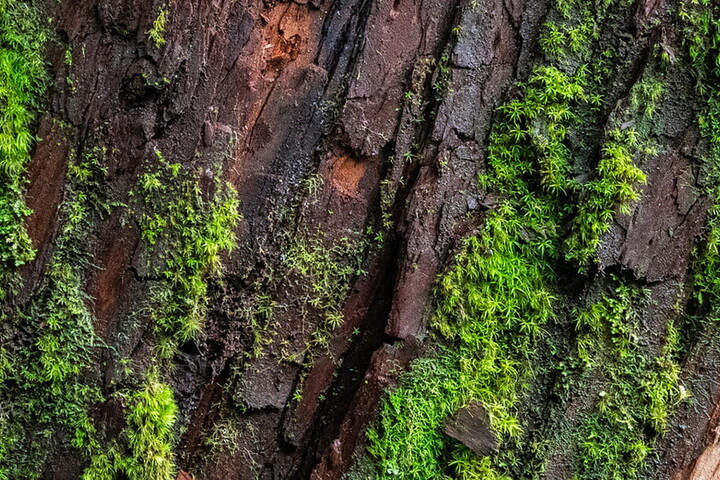It's a delicate mission: to protect the fundamental components of our natural blue heritage through the protection of marine ecosystems. One Ocean Foundation – an Italian non-profit operating at the international level to protect the ocean – is engaged in this mission of protecting and restoring marine ecosystems with the planting of Posidonia oceanica, a plant of great importance for the Mediterranean Sea because it absorbs twice as much carbon dioxide as a terrestrial forest. Found only on our sea basin and having survived the glacial era, Posidonia oceanica is slowly disappearing, because of climate change, pollution, trawl fishing and countless other factors.

In the international context of the Agenda 30x30 of the United Nations, Jan Pachner, general secretary of the One Ocean Foundation, describes that state of the sea bottom and the actions aimed at its preservation, like the foundation's latest initiative: “Blue Forest”, the project launched to protect the Posidonia which includes Pirelli among its partners. The objective is literally the creation of an extensive underwater prairie, veritable green lungs of the sea.
“Blue Forest” is the latest initiative of the One Ocean Foundation. What is it about?
As a Foundation we deal with three key themes. The first is to sensitize schools and universities to increase awareness of the importance of the ocean. Then there are the activities and projects of scientific importance, such as the reforestation of marine plants or the collection of water samples to gauge the level of pollution and the presence of alien species and stress factors. In conclusion, the third area is the so-called blue economy, that is, we help big industry to become aware of the impact their activities have on the ocean: 80% of the pressures on the marine environment stem in fact of that which we do on land. And this then brings us to the “Blue Forest” which was created with the aim of protecting marine forests, because – even if we don't perceive it because we live outside the ocean they are indispensable for human life. This led to planting project of planting Posidonia oceanica.

What are the main benefits that the marine forests, and Posidonia oceanica, an bring?
They help us fight climate change. They manage to absorb 50% of the carbon dioxide produced in the atmosphere even if they cover only 1% of the sea bad. That makes it better than any plant found on land, including the amazon forests. In the case of Posidonia, however, it is the most widespread plant in the Mediterranean sea. It is estimated that it accounts for 80% of coastline oxygen production. In fact, we are talking about a land plant that ended up in the sea at the end of the glacial era. It is also essential for the biodiversity in the ocean, it is a “hotspot”, the technical term for an area within which more than 350 different species are found.
What is the current situation? How are your initiatives proceeding?
We began with the Posidonia project about two years ago, precisely at the level of reforestation. It is a very expensive and slow process. It is not like a tree on land: you need to go underwater with qualified people, map the seabed to find the optimal locations for its growth and conservation. Furthermore, Posidonia is a slow growing plant, about one centimetre a year, so it requires constant monitoring. Today, thanks to a collaboration with the University of Genoa, we have planted and restored around 200 square metres of marine forest, with a plant survival rate of 80%.

How do you imagine the marine ecosystem will be in ten years? And how healthy?
It will improve. Compared with 50 years ago, the trend is proceeding in a positive direction. Today there is greater awareness of the importance of the ocean, of the impact it has. Thanks to the 30x30 plan, that is the preservation of 30% of the ocean and doing it by 2030, there are many more projects for the restoration of the natural legacy which industry must support. A positive example would be the installation of water cleaning devices. Step by step, we are moving forward limiting damage to the natural heritage and protecting it. Being an enclosed basin, the Mediterranean is particularly exposed to climate change and human activity along its coasts. However, even if slowly, we see a progressive and constant improvement over the next ten years.
How can individuals help protect the marine forests?
Clearly, big industry will have the biggest role to play which is why they must be the ones to take steps in this direction. Even so, even individuals can contribute. That's why we are organizing educational and information initiatives regarding the marine forests: perhaps restricting the number of outings on boats or dinghies, especially in summer, or signaling the existence of illegal coastal rubbish dumps to the relevant authorities or collecting and responsibly disposing of trash found on the beach, a bit like people do in the mountains. Small acts that serve to sensitize and increase awareness of and respect for the marine ecosystem, which even if we know little about it does a great deal in the fight against climate change.

How then can important partnerships, like Pirelli's, help the mission progress?
In innumerable ways. The partnerships with companies like Pirelli, who are often excellent examples of sustainability in their own sectors, provide not only greater visibility but they help us to spread awareness to other brands in the same sector and thus increase its credibility. For this mission, we have understood that philanthropy alone is not enough and that we, as the front line, must engage with big industry, to increase awareness of the need to protect the marine ecosystem.




